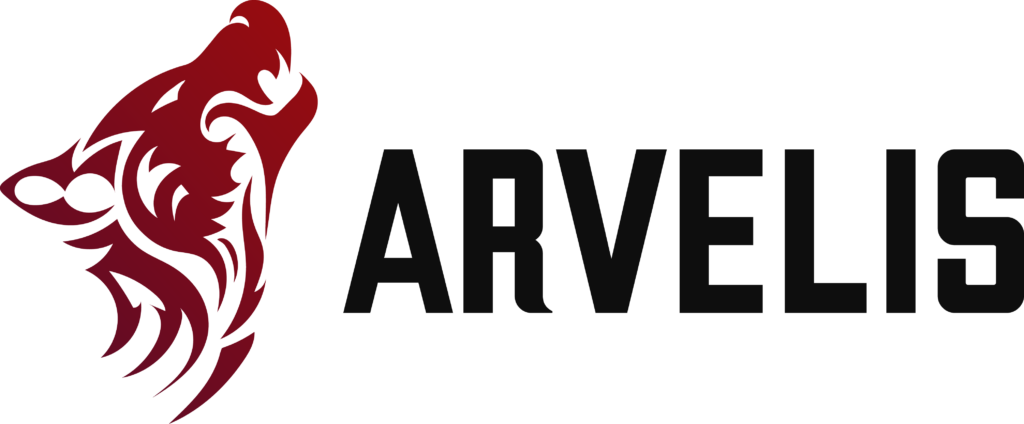Breaking into the marketing industry can be exciting, but entry-level marketing jobs require a combination of creativity, analytical thinking, and adaptability. Whether crafting campaigns, managing social media, or analyzing customer data, having the right skills will set you apart in this competitive field. Employers seek candidates who bring fresh ideas, communicate effectively, and execute marketing strategies that drive results.
Beyond natural talent, success in marketing comes from continuous learning and hands-on experience. Understanding different careers in marketing and investing in marketing training programs can give you an edge in the industry.
This guide will walk you through the top skills you need, how they apply to real-world marketing roles, and ways to strengthen your expertise to build a lasting career.
1. Communication Skills
Marketing is about delivering the right message to the right audience. Strong communication skills are essential for crafting compelling content, collaborating with teams, and engaging with customers.
- Writing clear, persuasive copy for emails, ads, and social media posts that resonate with the target audience and encourage engagement.
- Presenting ideas confidently in meetings and client pitches to gain buy-in from stakeholders.
- Listening to customer feedback and adjusting messaging to maintain brand relevance and effectiveness.
- Understanding tone, voice, and clarity to ensure consistent brand messaging across all platforms.
- Refining messaging for different audiences, ensuring relevancy and impact.
2. Creativity and Innovation
Creativity drives successful marketing campaigns. Professionals who think outside the box can develop unique strategies that capture attention and build strong brand identities.
- Brainstorming fresh marketing concepts that stand out from competitors and attract audience interest.
- Creating visually engaging content that aligns with brand messaging and storytelling.
- Crafting compelling storytelling to connect with audiences emotionally and enhance customer engagement.
- Experimenting with new content formats, such as videos, infographics, and interactive content.
- Developing original marketing campaigns that drive audience participation and brand loyalty.
3. Data Analysis and Interpretation
Marketing isn’t just about creativity; it requires a data-driven approach to measure success and optimize performance. Understanding analytics helps marketers make informed decisions.
- Tracking key performance metrics like conversion, ROI, and engagement rates to measure campaign success.
- Using tools like Google Analytics, HubSpot, and CRM software to assess customer behavior and campaign effectiveness.
- Conducting A/B testing to refine strategies for better engagement and optimizing content for maximum impact.
- Interpreting customer insights to develop personalized marketing strategies that resonate with different demographics.
- Applying data insights to adjust marketing budgets and resource allocation for maximum efficiency.
4. Social Media Management
Social media plays a critical role in modern marketing. Marketers must know how to engage audiences across platforms and leverage trends effectively.
- Developing platform-specific content strategies for engagement on LinkedIn, Instagram, Facebook, and Twitter.
- Monitoring audience interactions and responding to comments and messages to build brand loyalty.
- Using analytics to track performance, adjust social media campaigns, and maximize reach.
- Keeping up with algorithm changes and social media trends to maintain visibility and effectiveness.
- Collaborating with influencers and brand ambassadors to expand reach and credibility.
5. Adaptability and Willingness to Learn
Marketing trends evolve constantly, and professionals must be flexible to keep up with new technologies and strategies.
- Staying updated on industry changes, including algorithm updates, new marketing tools, and emerging trends.
- Experimenting with innovative marketing approaches to keep campaigns fresh and relevant.
- Learning from feedback, analyzing failures, and adjusting strategies to improve results.
- Embracing new skills such as video marketing, AI-driven campaigns, and automation.
- Maintaining a growth mindset to continue evolving with the industry.
6. SEO and Digital Marketing Basics
A strong understanding of search engine optimization (SEO) and digital marketing strategies can help marketers enhance brand visibility and reach the right audience.
- Optimizing content with relevant keywords for search engines to improve organic reach.
- Understanding paid advertising strategies such as PPC campaigns and how to maximize ad spend efficiency.
- Utilizing email marketing for customer engagement and lead generation.
- Implementing content marketing strategies that boost website traffic and conversions.
- Leveraging automation tools to streamline digital marketing campaigns.
7. Project Management and Organization
Marketing professionals handle multiple campaigns simultaneously, making project management skills crucial for meeting deadlines and maintaining quality.
- Prioritizing tasks and setting realistic deadlines to ensure timely execution.
- Using project management tools like Trello, Asana, and Monday.com to streamline workflows.
- Coordinating with cross-functional teams such as designers, developers, and sales teams to ensure seamless execution.
- Managing resources effectively to maximize campaign impact while staying within budget.
- Tracking progress and adapting workflows for efficiency and productivity.
8. Networking and Relationship-Building
Strong professional relationships can open doors to new marketing opportunities. Building a network helps marketers learn from industry leaders and stay ahead of trends.
- Attending industry events, workshops, and webinars to expand professional connections.
- Engaging with thought leaders on LinkedIn and marketing communities.
- Seeking mentorship and career guidance from experienced marketers.
- Collaborating with professionals from different industries to broaden knowledge and perspectives.
- Building strong client relationships that foster long-term brand loyalty.
9. Sales and Persuasion Skills
Marketing and sales go hand in hand. Understanding how to persuade customers and influence their purchasing decisions is valuable.
- Crafting marketing messages that drive conversions and encourage customer action.
- Understanding customer needs and pain points and offering tailored solutions.
- Aligning marketing efforts with sales goals to create seamless customer experiences.
- Leveraging storytelling to develop compelling brand narratives that build trust.
- Enhancing negotiation skills to secure valuable partnerships and collaborations.
10. Time Management and Attention to Detail
Balancing multiple responsibilities while maintaining quality requires strong time management and a keen eye for detail.
- Managing workloads effectively to meet deadlines without sacrificing quality.
- Reviewing content and campaigns to ensure accuracy, consistency, and alignment with brand guidelines.
- Using productivity tools like time-blocking and task prioritization to stay organized.
- Avoiding costly mistakes by double-checking campaign materials before launch.
- Allocating time efficiently for content creation, strategy development, and campaign monitoring.
The Role of Marketing Training Programs in Career Development
Marketing training programs provide structured learning and hands-on experience, accelerating career growth for aspiring marketers. These programs offer comprehensive knowledge of fundamental marketing principles, ensuring individuals understand how to create effective campaigns, analyze consumer behavior, and leverage digital tools. Through workshops, online courses, and certification programs, marketers gain exposure to industry best practices and develop a competitive edge.
Many training programs also include real-world case studies and hands-on projects, allowing participants to apply what they learn in practical settings. This combination of theory and application helps aspiring professionals transition smoothly into entry-level marketing jobs, equipping them with the skills to adapt to the ever-evolving industry. Additionally, networking opportunities within these programs connect learners with industry experts, offering valuable mentorship and career guidance.
How to Land Your First Entry-Level Marketing Job
Securing an entry-level marketing job requires strategy, persistence, and a strong personal brand. Employers seek candidates who understand marketing principles and can showcase their skills effectively. Aspiring marketers should take strategic steps in their job search and career development to stand out in a competitive job market.
Crafting a Strong Resume and Cover Letter
Your resume and cover letter serve as your first impression with potential employers. Tailoring your resume to highlight relevant marketing skills and achievements demonstrates your ability to contribute effectively. A compelling cover letter should express your passion for marketing and how your experience aligns with the company’s goals.
Gaining Practical Experience
Hands-on experience is crucial for breaking into marketing. Internships, freelance projects, and volunteer opportunities provide exposure to real-world marketing tasks. By building a portfolio showcasing content creation, social media management, and campaign execution, you can demonstrate your skills to potential employers.
Preparing for Job Interviews
Strong interview preparation increases your chances of securing a role. Researching common marketing interview questions and understanding key industry trends can help you respond confidently. Examples of past experiences highlighting problem-solving, creativity, and data analysis skills will make a lasting impression.
Building a Professional Network
Networking plays a vital role in career growth. Attending industry events, connecting with marketing professionals on LinkedIn, and engaging in marketing forums can lead to job opportunities. Establishing relationships with mentors and industry experts can provide career guidance and valuable insights.
Showcasing Your Brand
Employers look for candidates who can market themselves effectively. Maintaining a professional online presence through LinkedIn, a personal blog, or a digital portfolio helps you stand out. Sharing insights, case studies, and marketing trends consistently demonstrates expertise and passion for the industry.
Master the Skills to Launch Your Marketing Career at Arvelis
A successful marketing career begins with a strong foundation of essential skills. Whether you specialize in content creation, data analysis, or social media management, refining these abilities can set you apart in entry-level marketing jobs. By exploring different careers in marketing, you can discover areas that align with your strengths and interests. Additionally, marketing training programs allow you to gain hands-on experience, industry knowledge, and certifications that can open doors to new opportunities and accelerate career growth.
Aside from technical skills, marketing success requires adaptability, persistence, and a commitment to continuous learning. The industry is ever-evolving, and staying ahead means embracing change and honing your expertise. Arvelis is dedicated to empowering professionals by providing cutting-edge training, real-world insights, and career development resources to help marketers excel. Whether you’re just beginning your journey or looking to refine your skill set, we support your growth.
Start building your future today and explore our career opportunities!

